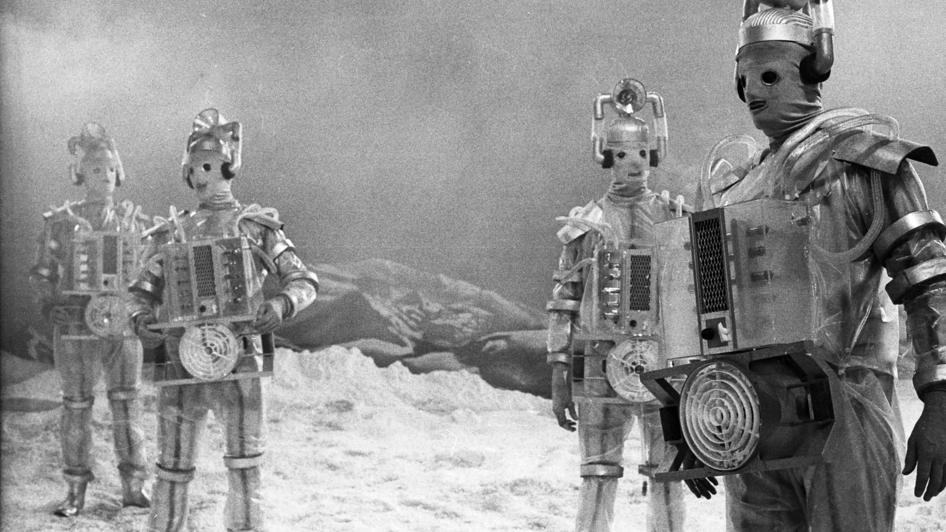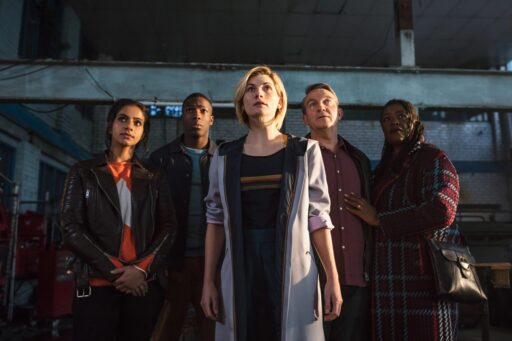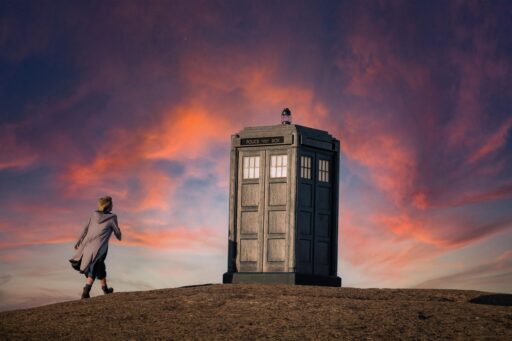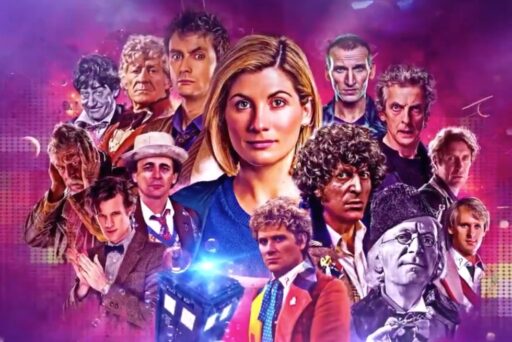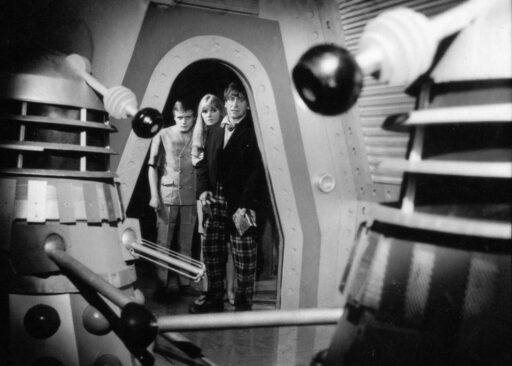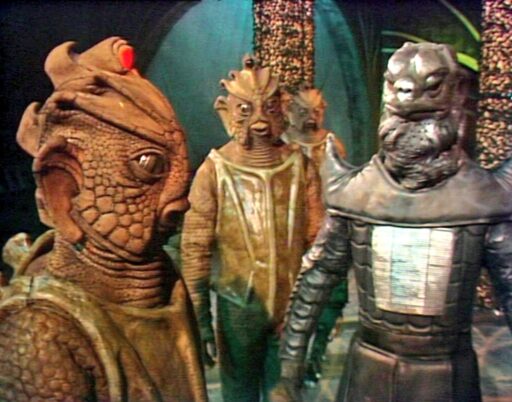The Tenth Planet is famous for two things. Primarily because it’s William Hartnell’s last story and secondarily but also significantly for being the first appearance of the Cybermen. There are some interesting if perhaps unintentional parallels between these two things.
Tenth Planet starts in a pretty traditional way for Doctor Who at the time with the Doctor and our companions once again failing to get to the right place and stumbling into a situation. While entirely studio bound and confined to a very small number of sets, this story attempts a large scale and does so quite effectively on a tiny budget.
While the cast is painfully stereotypical at times, and the less said about the accents the better, the diversity of nationalities definitely adds to the feel that this is an international situation, though it’s hard to avoid the conclusion that even in the far future of 1986 women still know their place and that is to make the coffee!
The story builds slowly, fading between scenes to set the stage and the initial focus is on the astronauts and their problems. It isn’t until very late in the first episode that any Cybermen make their appearance but things really never stops moving and unlike many stories of the time I don’t think there’s much padding here at all. It’s not revolutionary but it’s well constructed with smaller challenges and some strong personal motivation for General Cutler propelling things along.
Depending on who you ask the Modassian Cybermen are either masterpieces of body horror or incredibly cheap looking with tape holding their costumes together. The truth is of course, both. One of the reasons they work is because unlike later versions they are very obviously not robots and the people can be seen beneath the costumes. As they conveniently explain to us:
We are called Cybermen. We were exactly like you once, but our race was getting weak. Our life spans were getting shorter, so our doctors and scientists devised spare parts for our bodies until we could be completely replaced.
The Tenth Planet
They aren’t the only people who are getting weak though nor the only people whose bodies are going to get completely replaced. The Doctor notes that his body is “wearing a bit thin” as an explanation for his collapse in part 3. This wasn’t part of the script originally but an excuse to cover Harnell being unwell. As a result of this the Doctor is not a dominant part of the story although he does bring a sense of moral authority to various scenes he is present in.
Most of the elements that we see in modern Cybermen are present here at the beginning. They do come in large numbers, they are strong yet still vulnerable and lack independent personalities. However the thing that drives them here and that seems to be missing in so many Cyberman stories is the need to survive.
Their origin as stated in that quote above makes it clear that they exist in this form because it was the only way they could come up with to survive. Similarly the reason they brought Mondas back to Earth was to steal its energy so they could survive. Let’s not dwell too much on the 60’s sci-fi logic here and just take it at face value. They show no interest in dominating humans beyond taking advantage of them to extend their survival. Nothing about them really suggests they care about conquering or territorial expansion of any sort.
The theme of survival runs throughout the story. General Cutler is your generic gung-ho gun-loving US stereotype but he seems like a decent enough commander until his own son is threatened and after that his actions are driven by the desperate need for his son to survive and that leads him to do increasingly irrational things. While the Cybermen pride themselves on the logic of their actions, they have removed their heart and “improved” themselves so they think this is a rational step, but in doing so they have ceased to be human as Polly shows in her discussion with them, so was that really a rational thing to do or did the need to survive push them to irrational actions too?
And of course there is the Doctor. This script was originally written without the regeneration (though it wasn’t called that at the time) and as a result there isn’t a lot of build up to it and this isn’t a story about the Doctor particularly, but in the end he faces his own fight for survival and, with the conspicuous help of the TARDIS he is rejuvenated. It’s a very different regeneration to the ones which come later, but I really appreciate the simplicity of it. In comparison to the Cybermen the Doctor does not at any point seem willing to put others at risk in order to survive, in fact he makes a point of getting to the TARDIS on his own and keeping his companions outside.
You can also look at this as the show fighting for survival too. Changing the lead of the show like this is a desperation move with no guarantees of success, or at least that would have been how it seemed at the time. As it turns out it was exactly what the show needed in order to equip it for survival. While the ratings for Troughton may not have been as stellar as they had been during Hartnell’s Dalekmania period, the show had established that it could adapt and it would continue to do so.
Discover more from Veristopia
Subscribe to get the latest posts sent to your email.


